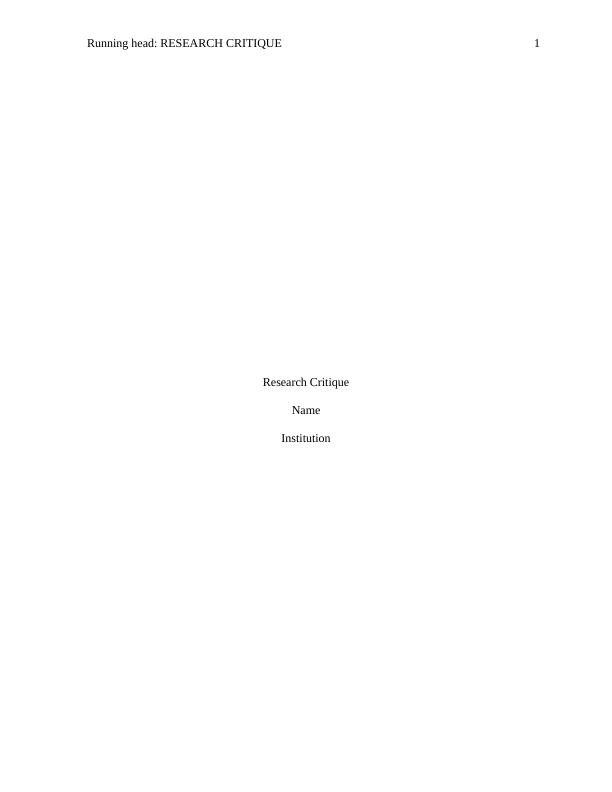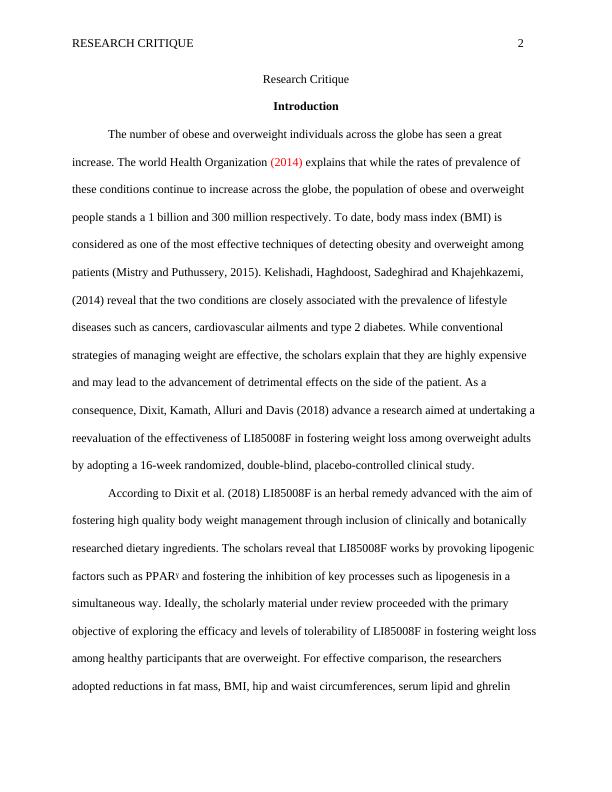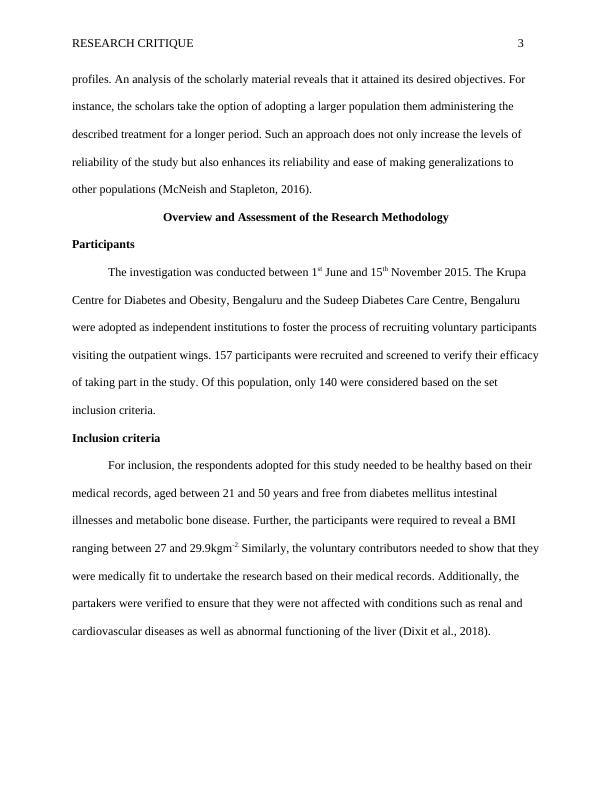Efficacy of LI85008F in Weight Loss: Research Critique
9 Pages2253 Words275 Views
Added on 2023-06-05
About This Document
This research critique evaluates the effectiveness of LI85008F in fostering weight loss among overweight adults. The study adopted a 16-week randomized, double-blind, placebo-controlled clinical study. The article discusses the research methodology, results, and conclusion.
Efficacy of LI85008F in Weight Loss: Research Critique
Added on 2023-06-05
ShareRelated Documents
End of preview
Want to access all the pages? Upload your documents or become a member.
Efficacy of Herbal Formulation for Weight Loss in Overweight Adults
|6
|1881
|479
Obesity Health Promotion: Need, Implications, and Potential Innovations
|13
|3783
|235
Obesity in Middle Aged Adults: Prevalence, Effects, and Prevention Strategies
|13
|4162
|103
Increased Self-Care Activities and Glycemic Control Rate in Relation to Health Education via Wechat Among Diabetes Patients: A Randomized Clinical Trial
|12
|3843
|20



